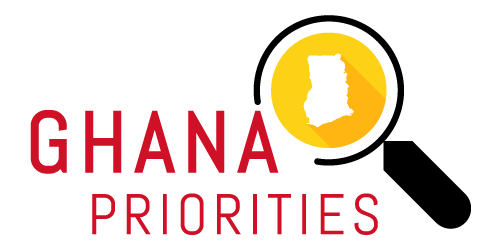Ghana Priorities: report on COVID-19 responses
Fast-track Analysis
This study calculates the social and economic costs and benefits of a hypothetical moderate lockdown of 9 months, including school closures, reducing social contacts by 30-50% in Ghana. Such a response to the COVID-19 pandemic would be less stringent than i.e. the enforced stay-at-home orders in India and South Africa leading to a reduction in social contacts by 50-75%.
Positive and negative health impacts
The total number of deaths avoided from moderate social distancing is likely to be around 16,000.
The analysis shows that moderate social distancing could reasonably reduce the death toll from COVID-10 by 22,600 people. In addition, lower social interaction would also mean less traffic and hence fewer traffic deaths, saving about 1,300 lives. Finally, with lower pressure on the health care system, it is estimated that almost 1,300 more people with HIV will not die over the coming 5 years.
However, moderate social distancing will also lead to less health outreach and more malnutrition, causing more deaths from malaria (1,400), from TB (5,200), and from child mortality (2,450) along with about 150 extra maternal deaths. There is evidence to suggest that total but unmodeled impacts from air pollution, non-communicable diseases, mental health, and unemployment would be more likely to increase rather than decrease these extra deaths. In total, it is likely that the complications following a moderate social distancing policy would result in at least an extra 9,200 deaths over the next five years.
446,000 life-years would be gained compared to 348,000 life years lost, as deaths avoided from COVID-19 are likely to be of older people, whereas deaths from the remaining causes are likely to be of younger people.
Negative economic impact
Moderate movement and livelihood restrictions would generate a higher economic cost, which would lead to a loss of GHS 262 billion (USD 46.4 billion) - the estimated present value of GDP loss over the next 30 years. This is equivalent to almost two-thirds of an entire year of GDP.
Negative impacts of school closures
Closing schools for 9 months means that 7.2 million children will receive 9 months less education, including 2.8 million children who will not receive school meals. This will make each child less productive in their adult years. In total, it is estimated that the social cost of closing schools for Ghana will be around GHS 14.9 billion (USD 2.6 billion) – the present value of income loss for 7.2 million children over the next 50 years.
The costs of moderate lockdown and school closures vastly exceed the benefits
In conclusion, moderate social distancing and school closures can save 16,000 lives at a cost of GHS 282 billion (USD 50 billion) in lower life quality for the future. The cost-benefit analysis shows that the cost vastly outweighs the benefit. Every cedi (dollar) spent will generate five pesewas (cents) of social benefit.
The COVID-19 pandemic presents policy-makers with difficult trade-offs. Based on this analysis, this report suggests three headline policies that balance out the need to contain COVID-19 with other concerns:
- Do not increase social restrictions more than what is already in place.
- Do not close schools, and reopen closed schools
- Keep key community health services funded and operating
Ghana should continue a series of sensible low-cost social distancing measures like cocooning of elderly, no large gatherings, and handwashing. It should keep health services for tuberculosis, malaria, and vaccinations running. It should provide masks for health personnel. But according to this analysis, Ghana should not shut down its schools or its economy to tackle corona, because the harms will vastly outweigh the benefits.

